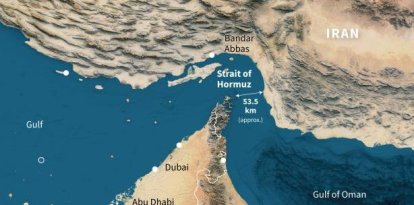China to offer 'zero-tariff' deal to Taliban regime in search of mineral resources
The exploitation of Afghan mineral resources, especially lithium, copper and iron, is of interest to Beijing, while providing crucial revenue for the Taliban regime. Currently, exports between the nations amount to approximately $64 million a year.

Xi Jinping, president of China
China will offer a "zero-tariff" agreement to the Taliban regime in Afghanistan, according to Zhao Xing, China's ambassador to the country. The diplomat announced that duty-free export privileges will be implemented as part of Beijing's strategy to promote trade cooperation.
">Great pleasure to meet with H.E. Maulavi Mohammed Abdul Kabir, Acting Deputy Prime Minister of Afghanistan and exchange views on strengthening bilateral cooperation. China will offer Afghanistan zero-tariff treatment for 100 percent tariff lines. pic.twitter.com/WxX1M8p0ls
— Zhao Xing 赵星 (@ChinaEmbKabul) October 24, 2024
Although no country (including China) recognizes the Taliban as the government of Afghanistan, the potential exploitation of Afghan mineral resources, especially lithium, copper and iron, piques China's interest and could provide crucial revenues for the Taliban regime.
Afghanistan's exports to China: $64 million a year
Currently, Afghanistan's exports to China amount to approximately $64 million a year, and the vast majority are shelled pine nuts. However, the country's huge mineral deposits remain largely unexplored, and will remain so without significant foreign investment in mining operations. The Taliban's urgency to revitalize a struggling economy, which the United Nations says is "basically collapsed," increases their willingness to collaborate with China, which needs these resources to support its high-tech and manufacturing industries.
In addition to the agreement, Taliban Deputy Prime Minister Maulavi Mohammed Abdul Kabir discussed plans to inaugurate a new economic corridor with China through Tajikistan, using a strip of land known as Wakhan that connects Afghanistan with China's Xinjiang province. This corridor could integrate Afghanistan into the China-Pakistan Economic Corridor (CPEC), thus strengthening regional connectivity.
"Selling Afghanistan's lithium, copper and iron deposits to feed China's enormous battery and construction industries would help the Taliban prop up their economy, which the U.N. says has 'basically collapsed,' and provide a much needed revenue stream as the country's overseas central bank reserves remain frozen," noted an analysis by Reuters.

























